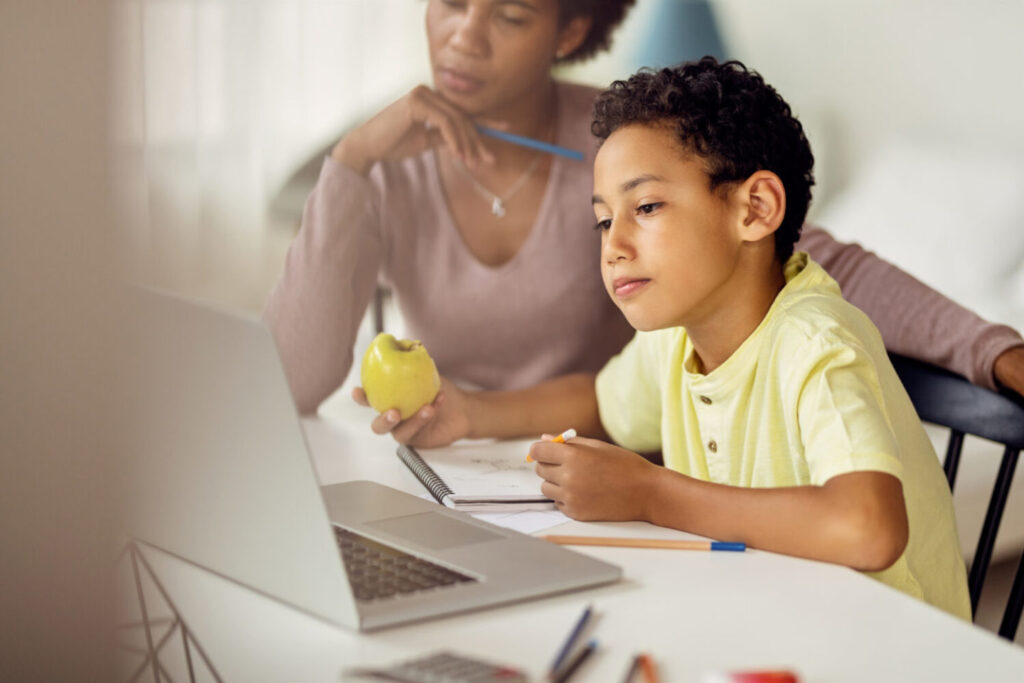Homeschooling rates hold steady even after schools reopen
Melanie Moore started homeschooling her 10-year-old son, Asher, at the beginning of the 2020-2021 school year.
As a single mom who runs a full-time massage therapy business, she only knew about…

Melanie Moore started homeschooling her 10-year-old son, Asher, at the beginning of the 2020-2021 school year.
As a single mom who runs a full-time massage therapy business, she only knew about homeschool through a local group that met at her church.
Two years later, Moore has decided to continue homeschooling for the foreseeable future.
“I have decided I do not want to return to public school, and that it is not an option,” the Lenexa, Kansas resident said. “He is truly thriving, and I actually love the homeschool life!”
Defying researcher predictions
Moore joined the millions of U.S. families who started homeschooling in 2020 when the COVID-19 pandemic hit and schools closed nationwide.
The homeschool rates increased to all-time highs across every demographic, including among Black and Asian families.
From 3% of all U.S. school-age children being homeschooled before the pandemic, the number jumped to an estimated 11% in 2020.
“The 11% estimate indicated that, over the course of the 2020–2021 school year, the percent of homeschool households had doubled or, perhaps, even tripled,” the Home School Legal Defense Association (HSLDA) reported.
Researchers had predicted that the numbers of homeschoolers would drop significantly after schools reopened. However, the latest U.S. Census figures released in March show a different picture, as homeschool rates dropped only 1%.
HSLDA notes that the decrease may be even smaller than 1% because of the survey’s wording. In the survey, parents are asked not to count students as homeschooled if they were enrolled in a public or private school.
That wording is problematic because homeschools are legally defined as private schools in some states such as Kansas, and homeschoolers sometimes enroll part time in advanced placement classes through public or private high schools.
“Instead of dropping slightly, the number of US homeschool households may not be dropping at all even though the pandemic continues to wane,” the HSLDA report concluded.
Based on this data, HSLDA estimates that 7-8 million school age children are being homeschooled nationwide.
Reasons for choosing to homeschool
Parents who chose to homeschool cited several factors for their decision, including the subject material being taught, classroom bullying and school policies related to the pandemic.
Moore said when schools closed during the spring of 2020, she never received any help regarding Asher’s individualized education program (IEP) and 504 accommodations, which he had received when classes took place in-person.
“We never received even a phone call, and haven’t to this day, from anyone in the public school system,” she said. “Sitting on a computer was a terrible experience, and I don’t feel my son benefited even one bit from the education he was being supplied with.”
Even before the pandemic, Moore said schools were pushing subjects that she considered inappropriate for students’ ages, and other schoolchildren were creating hostile or ineffective learning environments.
“We decided to start homeschooling because the public schools seemed to be going in a downward direction in several ways,” she said, adding that schools seemed more worried about masks and isolation than learning.
Moore said that she thinks people often assume they can’t homeschool as working parents, or don’t feel qualified if they lack a background in education.
“I have explained how the sacrifice and finding something that is creative for work is worth it if they really want to do it,” she said, adding that homeschooling provides her family with educational freedom and flexibility that public schools don’t allow.
In addition, Moore said, the curriculum she uses is so well organized that everything is lined out for her and Asher.
Meanwhile, Asher has plenty of chances to socialize with other homeschool friends, as well as track club, church and neighborhood activities.
“We have seen major benefits,” she said, saying the biggest was the reduction in medication for her son’s diagnosis.
She also said her son was calmer, had less anxiety and showed an increased ability to retain and learn new information.
“We also love being around like-minded families and children,” she said, “who are focusing on God-centered educational foundations.”



